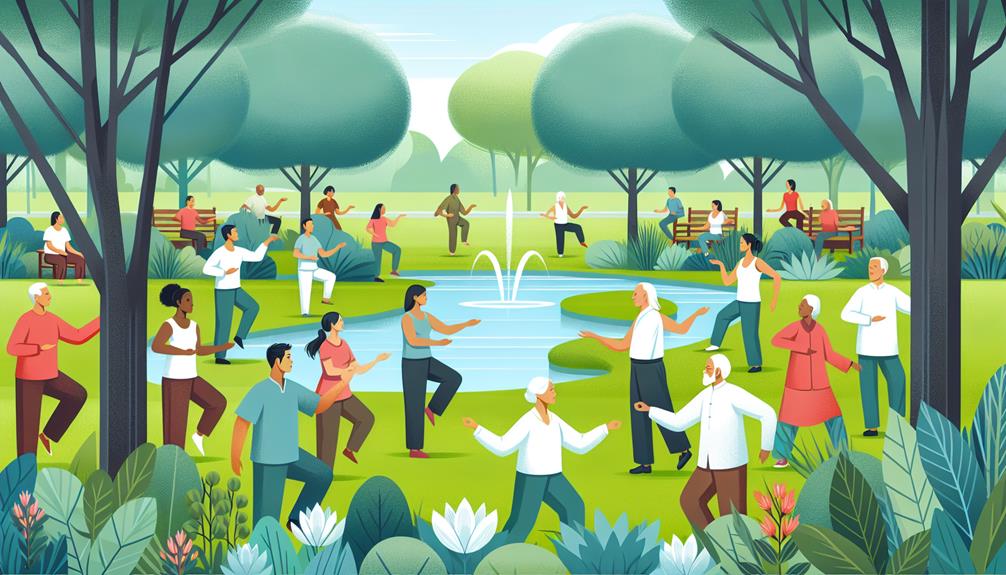Imagine yourself as a sailboat steering through turbulent waters, the winds of deadlines and demands pushing you off course. Now, picture incorporating mindfulness as your anchor, grounding you in the present moment and guiding you towards smoother sailing. By exploring practical strategies for integrating mindfulness into your daily work routine, you can access a calmer, more focused approach to productivity. Curious to discover how mindfulness can transform your work experience and enhance your overall well-being?
Key Takeaways
- Incorporate mindful breathing exercises for stress relief and focus.
- Practice gratitude daily to enhance mood and job satisfaction.
- Set clear boundaries to maintain work-life balance.
- Improve communication through active listening and empathy.
- Prioritize self-care to boost productivity and well-being.
Benefits of Mindfulness at Work
Incorporating mindfulness practices into your daily work routine can lead to improved focus and productivity. Mindfulness is a powerful tool in stress management, allowing you to stay grounded and present amidst work pressures. By practicing mindfulness, you equip yourself with the ability to navigate challenges with a clear and calm mind, ultimately enhancing your performance at work.
One of the key benefits of mindfulness in the workplace is its impact on stress management. When you integrate mindfulness into your routine, you develop a heightened awareness of your thoughts and emotions. This self-awareness enables you to recognize stress triggers early on, empowering you to respond in a more composed manner. As a result, you can effectively manage stress levels and prevent it from derailing your performance.
Moreover, mindfulness contributes to improved performance by enhancing your focus and decision-making skills. By cultivating a present-moment awareness, you can concentrate better on tasks at hand and make more informed choices. This heightened focus translates into increased productivity and efficiency in your work.
Mindful Breathing Techniques
To enhance your mindfulness practice in the workplace, let’s explore the effective technique of mindful breathing. Mindful breathing is a powerful tool that can help you manage stress and increase relaxation. Here are three simple yet effective mindful breathing techniques to incorporate into your daily routine:
- Deep Breathing: Take a moment to focus on your breath. Inhale deeply through your nose, feeling your lungs expand, then exhale slowly through your mouth. Repeat this several times, allowing yourself to fully engage with each breath.
- Counted Breaths: As you breathe in and out, count each breath cycle. Focus on the sensation of the air entering and leaving your body. This practice can help calm your mind and center your thoughts.
- Guided Visualization: Close your eyes and imagine a peaceful place. Breathe slowly and deeply, envisioning yourself in this serene environment. Allow yourself to relax and let go of any tension or stress.
Incorporating these relaxation exercises into your daily routine can significantly contribute to your stress management and overall well-being.
Practicing Gratitude Daily
Explore the transformative practice of daily gratitude and its positive impact on your workplace well-being. Practicing gratitude daily can greatly enhance your overall workplace experience. By incorporating gratitude journaling and mindful exercises into your routine, you can cultivate a more positive and resilient mindset, leading to increased productivity and decreased stress levels.
To better understand the benefits of practicing workplace gratitude and mindful self-care, consider the following table:
| Benefits of Practicing Gratitude Daily |
|---|
| 1. Enhanced mood and positivity |
| 2. Improved relationships with colleagues |
| 3. Increased job satisfaction |
| 4. Reduced stress levels |
| 5. Boosted overall well-being |
Setting Mindful Work Boundaries
How can you establish healthy boundaries at work to protect your well-being and foster a more mindful environment? Setting mindful work boundaries is pivotal for maintaining a healthy work-life balance and implementing self-care practices. Here are three actionable tips to help you achieve this:
- Define your limits: Clearly communicate your boundaries to your colleagues and supervisors. Let them know your availability outside of work hours and what tasks you can realistically take on without compromising your well-being.
- Take breaks: Incorporate short breaks throughout your workday to recharge and refocus. Use this time to practice mindfulness techniques such as deep breathing or taking a short walk to clear your mind.
- Learn to say no: It’s okay to decline additional work or projects if your plate is already full. Prioritize tasks based on importance and deadlines, and don’t hesitate to delegate when necessary to maintain a healthy balance.
Mindful Communication Strategies
Establishing mindful communication strategies in the workplace is essential for fostering positive relationships and promoting a harmonious work environment. One key aspect of mindful communication is active listening. By actively listening to your colleagues, you show respect and understanding, which can lead to better collaboration and reduced misunderstandings.
| Mindful Communication Strategies | Benefits | Implementation Tips |
|---|---|---|
| Practice active listening | – Enhances understanding – Improves relationships | – Maintain eye contact – Avoid interrupting |
| Pay attention to nonverbal cues | – Helps decipher underlying emotions – Enhances empathy | – Notice body language – Be mindful of your own nonverbal cues |
| Foster open and honest communication | – Builds trust – Resolves conflicts effectively | – Encourage feedback – Be receptive to others’ viewpoints |
Additionally, being aware of nonverbal cues is vital. Paying attention to body language and facial expressions can help you better understand your coworkers’ emotions and respond appropriately. Finally, fostering open and honest communication creates a culture of trust and transparency, leading to more effective conflict resolution and collaboration.
Mindfulness for Enhanced Focus
To enhance your focus at work, integrating mindfulness techniques into your daily routine can be highly advantageous. By practicing mindfulness for improved focus, you can effectively manage distractions and boost your productivity. Here are some strategies that can help you enhance your focus through mindfulness:
- Concentration Exercises: Engage in concentration exercises like deep breathing or visualization to sharpen your focus and train your mind to stay present in the moment.
- Mindfulness Practices: Implement mindfulness practices such as mindful breathing or body scans to bring your attention back to the task at hand whenever you feel distracted.
- Stress Reduction: Mindfulness not only enhances focus but also aids in stress reduction. By practicing mindfulness regularly, you can cultivate mental clarity and improve your ability to tackle challenging tasks without feeling overwhelmed.
Incorporating these mindfulness techniques into your daily work routine can notably improve your focus, leading to a more productive and fulfilling workday.
Frequently Asked Questions
Can Mindfulness Practices Improve Team Collaboration in the Workplace?
Mindfulness practices can improve team collaboration in the workplace. Research shows that fostering mindfulness boosts team bonding, communication, trust building, and problem-solving skills. Embrace these techniques to enhance your team dynamics and productivity.
How Can Mindfulness Help Boost Creativity and Innovation at Work?
To boost creativity and innovation at work, mindfulness can enhance brainstorming by fostering focus and open-mindedness. Mindfulness aids problem-solving by promoting clarity and reducing stress, allowing fresh perspectives and out-of-the-box ideas to flourish in your team.
Is It Possible to Integrate Mindfulness Into Virtual Team Meetings?
Yes, you can integrate mindfulness into virtual team meetings to boost virtual engagement and team cohesion. Incorporating remote mindfulness practices can enhance meeting effectiveness, foster a sense of connection, and improve overall team dynamics.
Can Mindfulness Techniques Enhance Decision-Making Skills in Professionals?
Yes, mindfulness techniques can greatly enhance your decision-making skills. By fostering cognitive clarity and improved focus, mindfulness enables you to make better judgments and engage in critical thinking, ultimately leading to more informed and effective decisions.
How Can Mindfulness Be Used to Manage Conflicts in a Work Environment?
When conflicts arise at work, mindfulness can help you navigate challenging situations with grace. By practicing active listening and being present in the moment, you can foster better team dynamics and promote effective conflict resolution.



